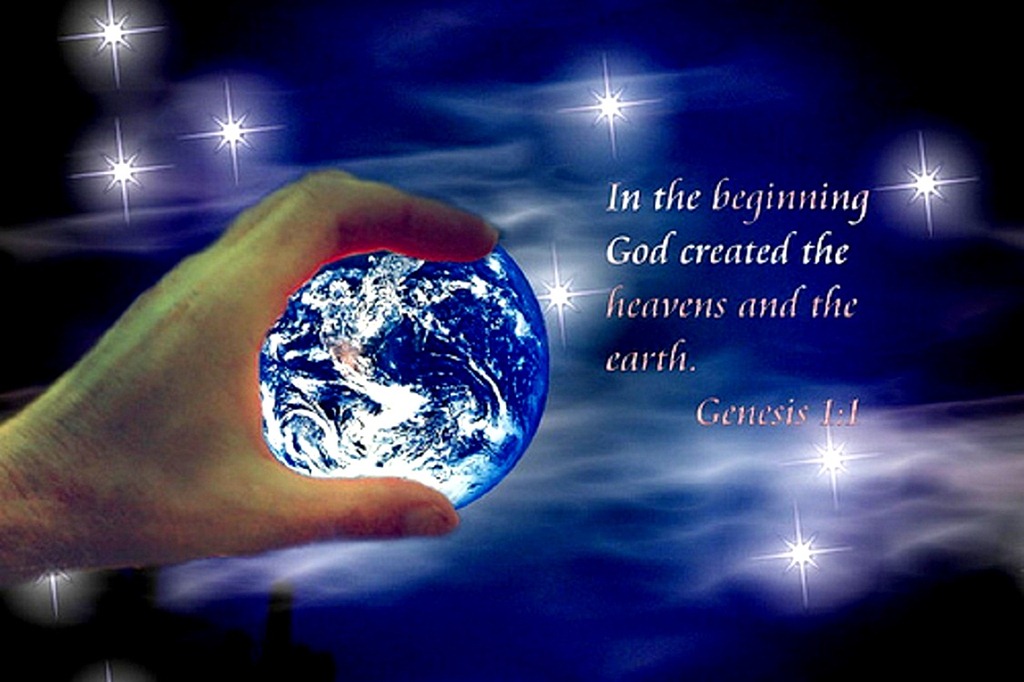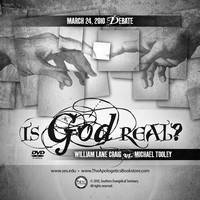Post Author: Bill Pratt
 That is exactly what Sean Carroll attempted to do in his recent debate with William Lane Craig. Here is what Carroll said:
That is exactly what Sean Carroll attempted to do in his recent debate with William Lane Craig. Here is what Carroll said:
Why should we expect that there are causes or explanations or a reason why in the universe in which we live? It’s because the physical world inside of which we’re embedded has two important features.
There are unbreakable patterns, laws of physics — things don’t just happen, they obey the laws — and there is an arrow of time stretching from the past to the future. The entropy was lower in the past and increases towards the future. Therefore, when you find some event or state of affairs B today, we can very often trace it back in time to one or a couple of possible predecessor events that we therefore call the cause of that, which leads to B according to the laws of physics.
But crucially, both of these features of the universe that allow us to speak the language of causes and effects are completely absent when we talk about the universe as a whole. We don’t think that our universe is part of a bigger ensemble that obeys laws. Even if it’s part of the multiverse, the multiverse is not part of a bigger ensemble that obeys laws. Therefore, nothing gives us the right to demand some kind of external cause.
If Carroll’s argument works, then atheists have discovered a clever way to avoid any form of the cosmological argument for God’s existence. But does his argument really work? According to philosopher Ed Feser (in this blog post), it does not, at least not if Carroll is arguing against classical Christian theology.
Feser takes up Carroll’s argument:
Now in fact it is Carroll who has said absolutely nothing to establish his right to dismiss the demand for a cause as confidently as he does. For he has simply begged all the important questions and completely missed the point of the main traditional classical theistic arguments . . . .
One problem here is that, like so many physicists, Carroll has taken what is really just one species of causation (the sort which involves a causal relation between temporally separated events) and identified it with causation as such. But in fact, the Aristotelian argues, event causation is not only not the only kind of causation but is parasitic on substance causation.
Feser continues:
But put that aside, because the deeper problem is that Carroll supposes that causation is to be explained in terms of laws of nature, whereas the Aristotelian view is that this has things precisely backwards. Since a “law of nature” is just a shorthand description of the ways a thing will operate — that is to say, what sorts of effects it will tend to have — given its nature or substantial form, in fact the notion of “laws of nature” metaphysically presupposes causation.
So what does causation look like if it is not essentially about tracing a series of events backwards in time?
On the Aristotelian-Scholastic analysis, questions about causation are raised wherever we have potentialities that need actualization, or a thing’s being metaphysically composite and thus in need of a principle that accounts for the composition of its parts, or there being a distinction in a thing between its essence or nature on the one and its existence on the other, or a thing’s being contingent.
The universe, however physics and scientific cosmology end up describing it — even if it turned out to be a universe without a temporal beginning, even if it is a four-dimensional block universe, even if Hawking’s closed universe model turned out to be correct, even if we should really think in terms of a multiverse rather than a single universe — will, the Aristotelian argues, necessarily exhibit just these features (potentialities needing actualization, composition, contingency, etc.). And thus it will, as a matter of metaphysical necessity, require a cause outside it.
Thus the universe requires a cause outside it. As Feser explains, only that
which is pure actuality devoid of potentiality, only what is utterly simple or non-composite, only something whose essence or nature just is existence itself, only what is therefore in no way contingent but utterly necessary — only that, the classical theist maintains, could in principle be the ultimate terminus of explanation, whatever the specific scientific details turn out to be.
In the end, Carroll has simply not addressed the arguments from classical Christian theology and philosophy. He has not, therefore, successfully avoided the need for the universe to have a cause.
 In Christian theology, God created everything that exists out of nothing (ex nihilo), simply by speaking the universe into existence. When we turn to Mormon theology, we find a very different concept of creation. Mormons deny that God created the universe ex nihilo. What do they believe? According to the editors of
In Christian theology, God created everything that exists out of nothing (ex nihilo), simply by speaking the universe into existence. When we turn to Mormon theology, we find a very different concept of creation. Mormons deny that God created the universe ex nihilo. What do they believe? According to the editors of  Most atheists appeal to the process of Darwinian evolution as the source of our moral instincts, but this idea poses some intriguing questions. What if humankind had evolved in different circumstances, in different environments? One could imagine a different set of moral instincts having developed in humans. What about other animals? We see different behaviors in them based on their evolutionary history. Let’s look at some examples.
Most atheists appeal to the process of Darwinian evolution as the source of our moral instincts, but this idea poses some intriguing questions. What if humankind had evolved in different circumstances, in different environments? One could imagine a different set of moral instincts having developed in humans. What about other animals? We see different behaviors in them based on their evolutionary history. Let’s look at some examples.

